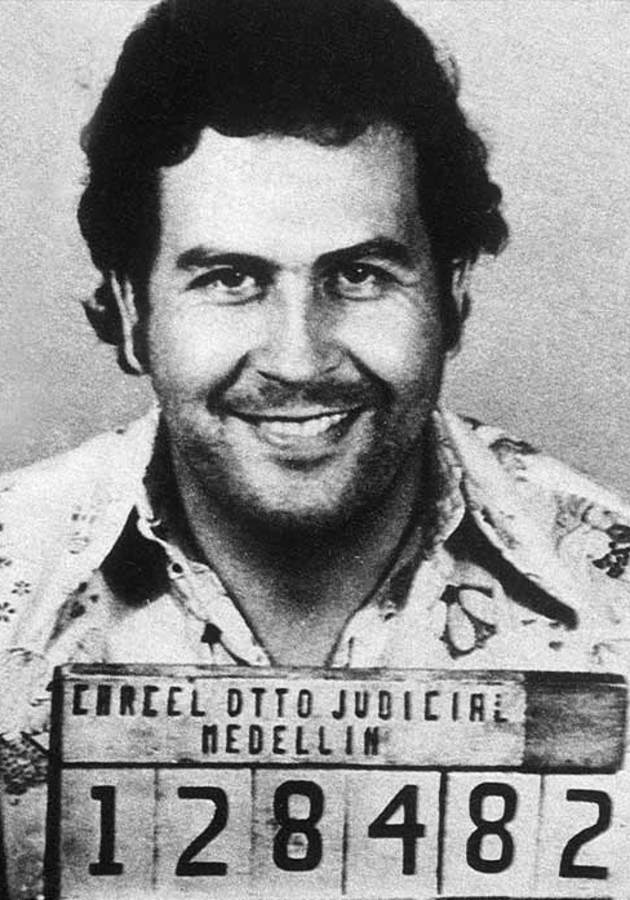Though often taken for granted (precisely because it is such an integral part of our lives), memory is one of the most essential elements in anyone’s survival toolkit for the modern world.
Whether you need it to remember your associates’ names at a cocktail party or to get a passing grade at your final exam, it is undoubtedly one of your most underrated and most valuable assets.
In Moonwalking with Einstein, Joshua Foer—brother of novelist Jonathan Safran Foer, and the 2006 U.S.A. Memory Champion—attempts to map out the capacity of the human mind to remember things, and sets out to investigate whether it is genetically predefined or teachable and dependent on mnemonic tools and methodical training.
To achieve this, Foer’s book rummages through historical volumes and mental athletes’ manuals, while documenting the author’s own, personal journey to become the 2006 U.S.A. Memory Champion and sharing his experiences with some of the most common memory tips and tricks.
Are you having trouble remembering faces, places, names, and numbers? Or, for that matter, anything?
Then, Moonwalking with Einstein is the book for you! An exemplary book of participative journalism, Foer’s study has everything: the science and the savants, the history and the hacks.
And we have the summary!
Memorization in the olden days
Have you ever heard of the Iliad and the Odyssey?
If not, the only two things you need to know about them to see where we’re going is that they are about three millennia old and, together , they are about 30,000 lines long!
Now, here’s another question:
The printing press was invented in 1440; how do you think these two epics reached us?
Here’s something that may shock you:
Many people in the ancient world knew them by heart! Each and every line of them! And the epics were orally transmitted from generation to generation until they were written down.
We know it sounds hard to believe. In fact, we won’t even blame you if you don’t believe us! After all, very few people believed that this is possible until about eight decades ago. And then, two Harvardians named Milman Parry and Albert Lord came upon a seemingly ordinary villager in Yugoslavia!
Over many days—and many, many cups of alcohol and coffee—he, Avdo Medjedovic (to their absolute amazement) recited to them two epics the length of the Iliad and the Odyssey. Even though he was just an illiterate butcher!
Now, how did he manage to have such an outstanding memory, as opposed to you, who can’t remember the name of your second cousin?
Simply put, since he didn’t know how to read, he had to! So, he used a couple of great techniques to master the art of memorization! Of course, Avdo didn’t actually invent or develop these techniques. In fact, as Joshua Foer reminds us, until the invention of the printing press. Almost everybody knew them!
How, you ask?
Well, it was part of everybody’s formal and informal education! “In a world with few books,” writes Foer, “memory was sacrosanct.”
For example, King Cyrus knew the names of all the soldiers in his army, and Cineas, an envoy of King Pyrrhus, supposedly memorized the names of all 900 members of the Roman Senate in a single day.
A certain Charmadas was capable of reciting the content of almost any book anyone would ask him to quote, and Seneca the Elder could repeat up to 2,000 names in the order they’d be given to him!
If that isn’t enough, St. Augustine reports of something even more amazing. If we are to believe him, one of his friends, a guy going by the name of Simplicius, could recite Virgil by heart—backward!
“That he could recite it forward seems to have been unremarkable,” adds Foer in a rather funny, but also thought-provoking parenthesis.
The 2,000-Year Old Bible of All Mnemonists: Ad Herennium
Even though some of the claims laid above can’t be taken at face value (most of them come from a book that says a lot of things which are not true), it is a historically proven fact that, for most of history, people spent many years of their lives learning memory techniques.
“Memory training was considered a centerpiece of classical education in the language arts,” writes Foer, “on par with grammar, logic, and rhetoric. Students were taught not just what to remember, but how to remember it.”
In other words, once upon a time, most of the people were capable of reciting Virgil by heart—which is why the remarkable men of the time were the ones who could recite him backward.
And we know this for a fact because of a few pages in the oldest surviving Latin book on rhetoric, Rhetorica ad Herennium (Rhetoric: For Herennius), which dates from about a century before the death of Christ.
As suggested by the title, Ad Herennium is actually a textbook on the nature and uses of the arts of rhetoric and persuasion.
Why does it include a part on memory and memory techniques? Well, because none of the ancient rhetoricians ever read their speeches. They weren’t even allowed to. They had to know them by heart.
The techniques to achieve this were so widespread that Rome’s greatest orator, Cicero, explicitly states in one of his books that he doesn’t want to waste ink to describe them in detail because they are just too well-known.
So, what happened?
Memorization in the Modern World
Everything: the printing press, the modern educational system, the Internet.
Simply put—we stopped remembering things because something other than us started remembering stuff for us. And then, we stopped teaching our kids how to remember things even though we still kept an ostensibly memory-based educational system!
Just think of all those times you needed to remember a list of items (countries, laws, authors, methods…) for your exam.
How did you try to memorize it?
The same way most people would nowadays: you repeated the items over and over again in something scientists call the “phonological loop,” a fancy name for that little voice inside your head.
True, these phonological loops help a bit because of the power of repetition, but the more abstract the fact that needs to be remembered, the more negligible the effect of repeating it is.
Even scarier, as you may have probably found out already, you never get better at remembering things if you only do it by way of phonological loops and rote memorization.
William James, one of the most famous psychologists of the 19th century, learned this the hard way.
He memorized the first 158 lines of Victor Hugo’s poem “The Satyr” at a rate of one line per 50 seconds. Then he moved to John Milton’s Paradise Lost and remembered the entire first book of it. Now, he went back to “The Satyr.” To his dismay, James found out that, instead of getting better, he got worse: this time around, he needed about 57 seconds per line!
Joshua Foer knows what James did wrong: he expected to improve by using a technique which can offer only limited improvement. In other words, James hadn’t learned how to remember before he started remembering!
Learn to remember?
Can we do that?
Learn Some of the Most Common Memory Techniques
Of course, we can!
Joshua Foer offers himself as evidence: as we wrote above, Moonwalking with Einstein documents Foer’s yearlong ascent from just a regular guy to a US Memory Champion, under the guidance of some of the best “mental athletes” this side of the Atlantic.
The two most important things he learned on his journey: 1) almost everybody is capable of remembering an Iliad or an Odyssey; 2) the techniques to become a memory master of this sort are quite well-known and haven’t changed for millennia.
In fact, most of them can already be found in the Ad Herennium’s discussion of memory!
The book begins by distinguishing natural and artificial memory—the former one the capacity related to our genetics, the latter one the skill which can be strengthened by a kind of training and system of discipline. “In other words,” writes Foer, “natural memory is the hardware you’re born with. Artificial memory is the software you run on your hardware.”
The artificial memory, goes on the anonymous author of the Ad Herennium, has two basic components: images (the contents of what one wishes to remember) and places (the “abodes” where these images are stored).
There, we just described the underlying mechanism of the most ancient and most effective memory technique: the method of loci (loci is Latin for “places”). Known also as memory palace, this method uses a simple hack to deceive our brain into remembering things it otherwise won’t memorize.
How?
By combining two things our brains remember quite well: vivid images and places.
You see, of all our ancestors only the ones capable of remembering both of them have survived to this day, because there were no maps for an extended period of history and because poisonous things are usually colorful and vibrant.
In other words, all of the people nowadays, through the miracle of evolution, boast with quite developed spatial memories and can notice the girl with brightly colored clothes before anybody else.
Combine them—and you can remember any list you like!
The rules are simple: exaggerate the items into vivid, hyperbolized images and store them as a sequence which correlates to an already remembered route or, say, a layout of a building. Now, you’ll be able to retrieve the items by “walking” through the places: the latter will work as a sort of activator of the former.
And that’s not the only technique you can use to become better at memorizing?
Want to remember the number 2209198823 or the word HEADSHOULDERSKNEESTOES? Divide them into dates (22/09/1988 23) or punctuate them (HEAD, SHOULDERS, KNEES, TOES) and it will be a lot easier.
Adding music to the word sequence will make it almost unforgettable. Just like adding familiar emotions or weird images to a particular poem passage. An old experiment proves it: people are way better at remembering that a person works as a baker than remembering the surname Baker.
Even though it’s the same word!
Why?
Because they’ve contextualized the first one more appropriately in their brain. In other words, Baker is an abstract name; and the baker has a white uniform, a white hat and bakes bread. Which one of these would you remember better?
Speaking of the imagination and the hardwired brain!
Have you noticed how there are some things that always attract your attention? Like sex? Or a funny joke? Or powerful emotions?
As long as humans exist, these things will have the most powerful effect on us. That’s why it’s easier to remember the phone number of the guy with a photoshopped six-pack than, say, the name of your second cousin. (God, what was it?)
So, the next time you try to memorize something, transform it into something funny, sexy, or emotional. You’ll remember it for a long time.
Evolution guarantees that.
Final Notes
Described as “absolutely phenomenal” by Bill Gates, Moonwalking with Einstein is a fascinating book—whether you are interested in participatory journalism or how to improve your memory.
Joshua Foer writes with scientific rigor and an excellent sense of humor all the way through, so there’s something for everyone in this book.
Do remember to read it!
12min Tip
Don’t expect to get better at memorizing things by repeating list items over and over again. Spend some time learning how to remember things, and then you’ll be able to remember everything. No matter what they tell you, memorization is not a God-given gift—it is a skill anyone can attain.





























